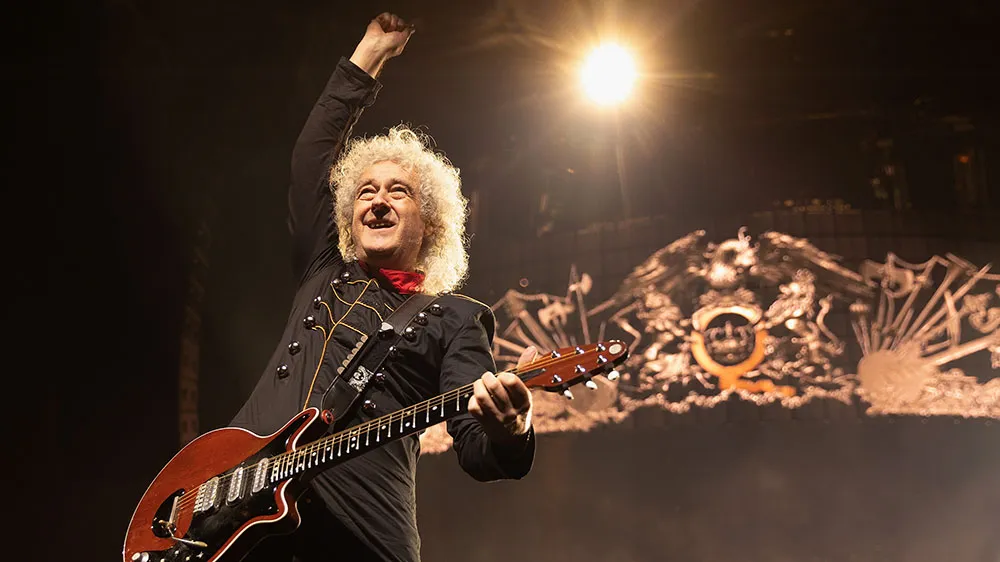Brian May, the guitarist for Queen, has recently disclosed that he suffered a minor stroke which temporarily left him unable to use his left arm.
May, who is both the band’s lead guitarist and an astrophysicist, shared the news of his “health hiccup” last week but assured fans that he is recovering and has regained the ability to play music.
He described the incident as a minor stroke, which suddenly deprived him of control over his arm, causing him some concern.
In a video posted on his website on Wednesday, May explained, “The good news is that I can play guitar. It was in some doubt because that little health hiccup that I mentioned happened about a week ago.
What they called it was a minor stroke, and all of a sudden, out of the blue, I didn’t have any control over this arm, so it was a little scary.”
May mentioned that he is currently resting and is unable to drive or fly, humorously noting that he is even avoiding planes flying overhead, as one could be heard in the background of the outdoor video.
He added, “I really don’t want sympathy. Please don’t do that because it will clutter up my inbox and I hate that.”

This revelation comes a few weeks after the airing of the documentary Brian May: The Badgers, the Farmers and Me on BBC Two, which focuses on his long-standing campaign to halt the culling of badgers.
Over the past decade, around 200,000 badgers have been killed based on the UK government’s belief that they contribute to the spread of bovine tuberculosis (bTB).
The culling is intended to manage bTB, which also leads to the slaughter of around 20,000 infected cattle each year and costs taxpayers approximately £100 million annually.
The culls, which have been underway since 2013, have been controversial. There is no scientific agreement on whether they have effectively reduced bTB.
Some studies suggest the culling has had no beneficial impact, and recent research indicates that a large-scale vaccination program could be more effective in eliminating bTB in badgers.
In his video, May also mentioned that the documentary has been well-received, particularly by farmers.
He commented, “It’s no surprise to me that we are not at odds at all with the farmers. We are at odds with the people who have been feeding them the wrong information.”


